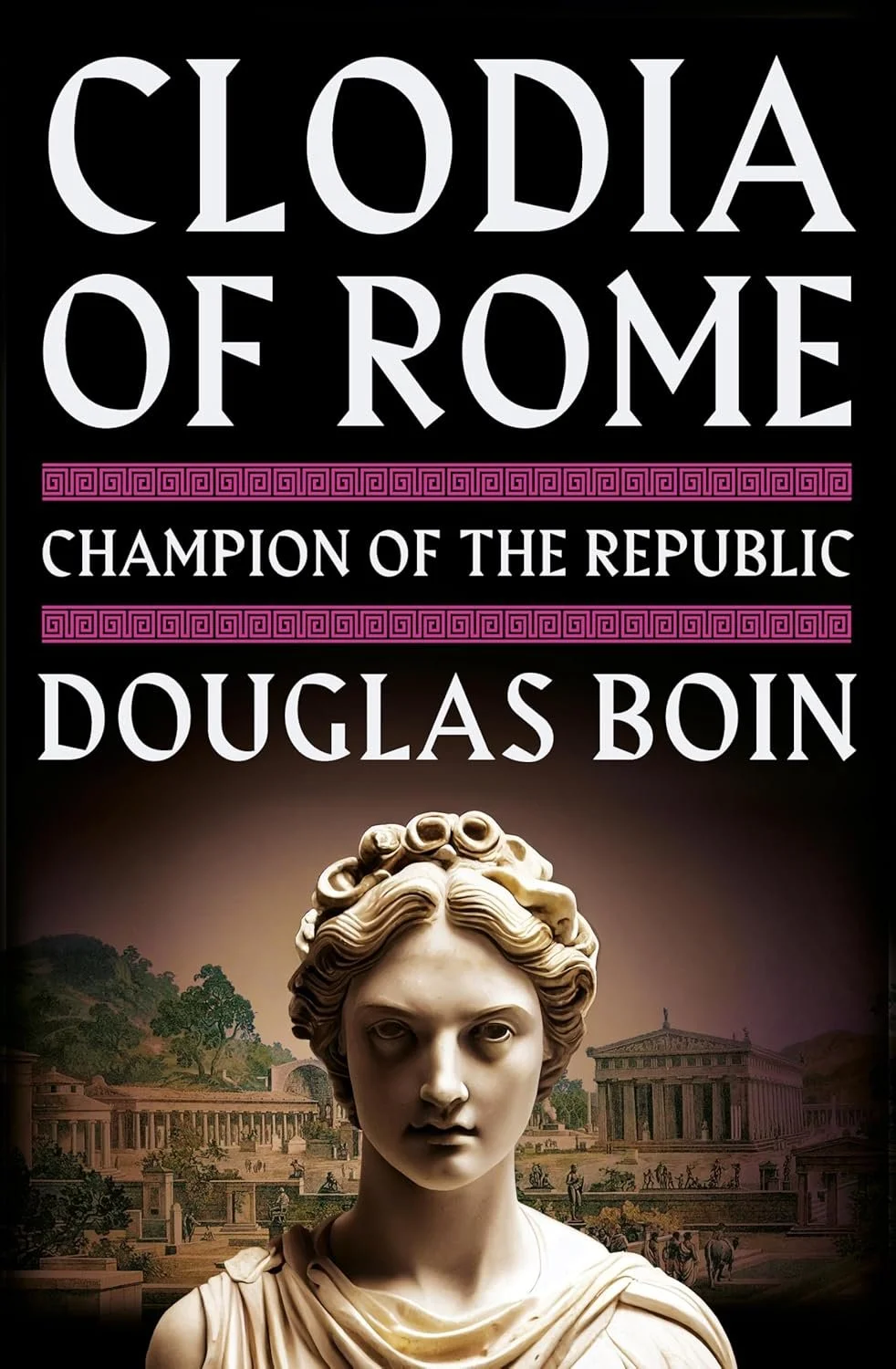Clodia of Rome by Douglas Boin
/Clodia of Rome: Champion of the Republic
By Douglas Boin
WW Norton 2025
Alert readers will pick up the mandarin humor of Saint Louis University history professor Douglas Boin’s new book Clodia of Rome: Champion of the Republic right there in the title. Boin’s previous book, 2020’s entertaining Alaric the Goth, had a light coltish air of whimsy around its edges, but nothing in it prepared the reader for the extended performance that is Clodia of Rome.
But some readers might be stubborn (or dim – it can happen) and need more than just a title and subtitle. They won’t need to read for long before they start grinning.
The Clodia of the book is infamous, of course. She was the sister of the firebrand tribune Publius Clodius Pulcher, and with him she changed the spelling of her name from the tradition of the very patrician Claudian family to the more plebian-sounding Clodius and Clodia, in order to curry favor with the mobs who were becoming increasingly pivotal to the seismic changes happening to Roman politics. Clodius had a squalid end waiting down the Appian Way, but Clodia achieved ample measure of her own scandal, not only in the guise of the Lesbia of Catullus but also as the object of Cicero’s rhetorical demolition while he was defending Marcus Caelius Rufus in a very publicly-conducted trial in 56 BC. For two thousand years, Clodia’s name has been a watchword for all the worst things power and affluence can make an ambitious dimwit: petty, hypocritical, cynical, licentious, and entitled.
With a straight face, Boin describes his book as a riposte to all that. This, he tells us, is Clodia’s side of the story. It’s comedy gold, and it leads immediately to passages like this:
Businessmen in Clodia’s day still traveled the Via Appia, a highly trafficked road crossing the Italian peninsula named for her fourth-great-grandfather, Appius Claudius. Twenty meters beneath Rome’s hills, an aqueduct, the Aqua Appia, engineered by that same distant ancestor, channeled fresh water into the capital. Just as deep in Clodia’s veins coursed her own unflagging commitment to justice, economic decency, and increased civic participation.
That “economic decency” is particularly choice.
Boin tells his readers that the brother and sister opportunistically changing their names in order to make manipulating their violent political base a bit easier was in fact a declaration of a new identity, that with it Clodia “asserted her own burgeoning populist ideals,” showing that she was “eager to forge a new direction for the republic.” Together, we’re told, the siblings “launched a two-pronged assault against the political and economic inequities of their day.” Yes indeed: Clodius and Clodia, tireless advocates for the working-class Roman. As mentioned: comedy gold.
Naturally, any book that even facetiously positions itself as a defense of Clodia must perforce also be an attack on Cicero, whose Pro Caelio can still very much make a reader burst into laughter at the Clodia parts. Boin’s Cicero is of course a nouveau riche bully and also something of a bungler; “His efforts at humor,” we’re told, “were legendary both for how often they fell flat and for how mean-spirited they made him appear …”
Claudia of Rome is wonderfully annotated, and Boin’s extensive reading is evident on every page, and, delightfully, he sprinkles plenty of his own translations of ancient passages throughout the text. But fear not: none of that spoils the fun.
Steve Donoghue is a founding editor of Open Letters Monthly. His book criticism has appeared in The Washington Post, The American Conservative, The Spectator, The Wall Street Journal, The National, and the Daily Star. He has written regularly for The Boston Globe, the Vineyard Gazette, and the Christian Science Monitor and is the Books editor of Georgia’s Big Canoe News
